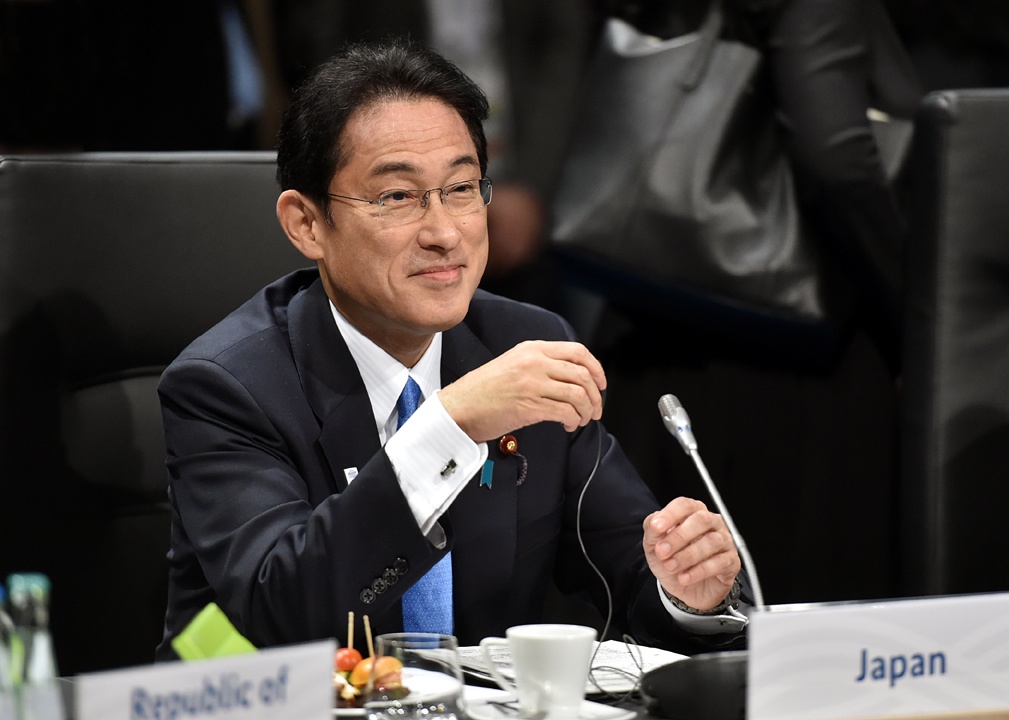Mitigating Geopolitical Risk – Japan as a Stabilizer in Asia
In the current tumultuous geopolitical setting, Tokyo may have a very specific, stabilizing role to play.

Japan indeed has, at the same time, very close ties to the United States, due to its long-term alliance, and very tight economic ties with China, due to geographical closeness and a long history of economic and trade relations. As the US-China rivalry becomes more severe, degrading from a trade war to an ideological confrontation and tensions in the Taiwan Strait, Tokyo has to find a way to protect both its security and economic interests.
Tokyo has no choice but to remain pegged to the American camp, while striving to maintain stable and functional relations with Beijing. It must constantly navigate between cooperation and competition in an attempt to preserve its interests. Therefore, Japan is striving to define the conditions for a secured cooperation with its neighbor and to set up, in close coordination with Washington and its other strategic partners, a strict framework of engagement with Beijing. It relies on a heightened deterrence posture in the East China Sea, a counterbalancing policy that also touches geoeconomics, and the implementation of an economic security strategy aimed at protecting technologies and critical sectors, to ensure better resilience of its value chains but also to become an essential center of innovation.
Japan has thus deployed a number of tools to support a positive regional and international order, and to reinforce deterrence against China through closer security ties with the US and other key partners. At the same time, it has tried to mitigate the great power competition and build bridges between like-minded partners such as Europeans and Americans. Finally, it has tried to set up a modus vivendi to continue to trade with China under more secure conditions by establishing a pioneer economic security strategy.
> Read the whole article on the website of Japan Spotlight

Available in:
Regions and themes
Share
Related centers and programs
Discover our other research centers and programsFind out more
Discover all our analysesThe U.S. Policy Toward Taiwan Beyond Donald Trump: Mapping the American Stakeholders of U.S.-Taiwan Relations
Donald Trump’s return to the White House reintroduced acute uncertainty into the security commitment of the United States (U.S.) to Taiwan. Unlike President Joe Biden, who repeatedly stated the determination to defend Taiwan, President Trump refrains from commenting on the hypothetical U.S. response in the context of a cross-Strait crisis.

China’s Strategy Toward Pacific Island countries: Countering Taiwan and Western Influence
Over the past decade, China has deployed a diplomatic strategy toward the Pacific Island Countries (PICs). This strategy pursues two main objectives: countering Taiwan's diplomatic influence in the region and countering the influence of liberal democracies in what Beijing refers to as the "Global South."

Opening up the G7 to South Korea to Address Contemporary Global Challenges
The G7’s global influence has diminished as powers like China reshape international governance through initiatives such as BRICS and the Shanghai Cooperation Organisation (SCO). With the G7 now representing just 10 per cent of the world’s population and 28 per cent of global GDP, its relevance is increasingly questioned.
Expanding SPDMM as a pivotal institution in the Pacific – A French perspective
The South Pacific Defence Ministers’ Meeting (SPDMM) is the only forum that brings together defense ministers from the wider South Pacific — including Chile, which is hosting it for the first time. This heterogeneous group of countries with varying resources, capacities, and interests — Australia, Chile, Fiji, France, New Zealand, Papua New Guinea (PNG), and Tonga — are united by their shared determination to strengthen cooperation on maritime security and humanitarian assistance and disaster relief (HADR) activities.









